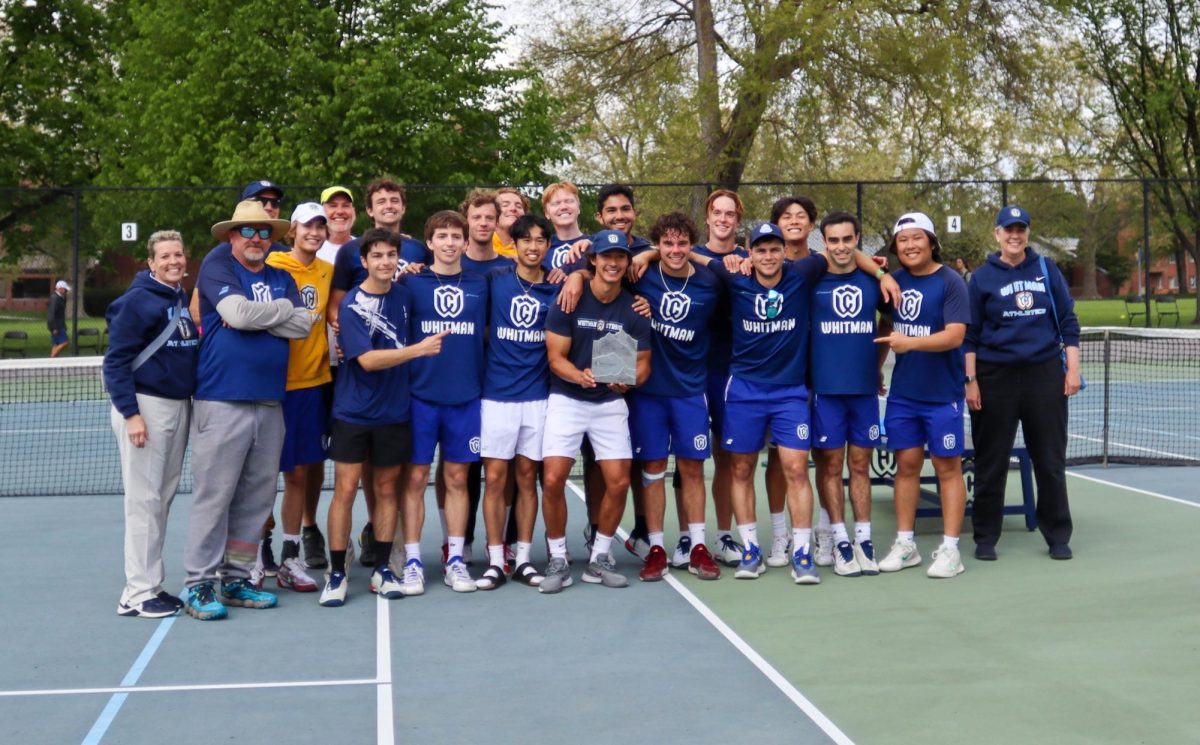
Every day, at least 200 Whitman College students take to the field, court, pool or slopes to train and compete in the sports that they love. Some choose to do so as part of a varsity program, while others select another route and join a club sport.
According to Athletics Director Dean Snider, approximately 75 percent of the Whitman student body is involved in athletics in some form through varsity, club and intramural (IM) sports. While a significant portion of this group strictly participates in IM sports, there are still well over 400 athletes on varsity or club teams.
Student athletes in both of these groups are expected to devote a large portion of their time to their sport. Between regular practices, morning practices, weight lifting and conditioning, varsity athletes can easily spend over 15 hours training for their sport, not including the travel time required to compete in conferences where almost all of the opponents are at least a four-hour drive away.
Club athletes are also often expected to make a similar time commitment. David Schmitz, history professor and coach of the men’s lacrosse team, expects a high level of commitment from his players.
“We run it like a varsity program,” Schmitz said.
Junior Stephen Stradley, who plays on the ultimate Frisbee team, echoes this belief.
“Including weight lifting, [the team practices for] probably 12 to 16 hours per week,” he said.
One of the biggest differences between varsity and club sports is that the latter are largely student-run.
“Club sports are a function of student interest where a student says, ‘I love this sport and want to be a part of this sport and I want to participate in it,” Snider said.
The other main area in which the two levels of athletics differ is the size of the respective budgets and amount of funds that the athletes are expected to provide for themselves. Paying for full-time faculty coaches takes up a large portion of a varsity team’s budget, while club sports either do not have a coach or use volunteer coaches, like Schmitz. For the many club sports that lack a coach, team leaders are relied upon to fulfill coaching duties.
But club athletes are expected to make some sacrifices when it comes to travel expenses to stay within their set budget. The men’s lacrosse team drives themselves to away games and tournaments. The ultimate Frisbee team buys all their own food while traveling for matches. The women’s lacrosse team will often stay at players’ houses when traveling to Seattle and Portland.
The biggest qualm for many club athletes is that they do not have access to the athletic training room. Varsity athletes have access to the training room for prevention and rehab of athletic injuries; club teams do not receive this kind of treatment. The ultimate Frisbee team, however, is currently trying to work out a solution to this discrepancy with the training room.
Head Athletic Trainer John Eckel sees that something should be done regarding injury prevention and rehab for club athletes, but realizes that the training room currently does not have the room or staff available.
“We just don’t have the staff. We’re pretty overextended as it is with the varsity athletes,” Eckel said. “But I agree that something needs to be done.”
Sophomore Abbye Neel, member of the women’s lacrosse team, believes that the athletic department treats club sports as second-class athletics compared to the varsity programs.
“I feel like they just kind of just throw us to the side,” Neel said. “They don’t pay a whole lot of attention to us.”
However, the athletic department insists that they are very committed to all student athletes.
“We have never: and we keep looking: found another school in our peer group that even comes close to the resources: funding and facilities: that we put into club sports,” Snider said.
Scott Shields, current cross-country head coach, former women’s soccer head coach and varsity and club athlete in his time at Whitman, feels that both varsity and club sports are essential for the college and that, although the two are different entities, they boil down to the same thing.
“I know people like to compare them and say this or that, but it shouldn’t be that way,” Shields said. “We should respect each other for what we do and celebrate [being athletes].”


